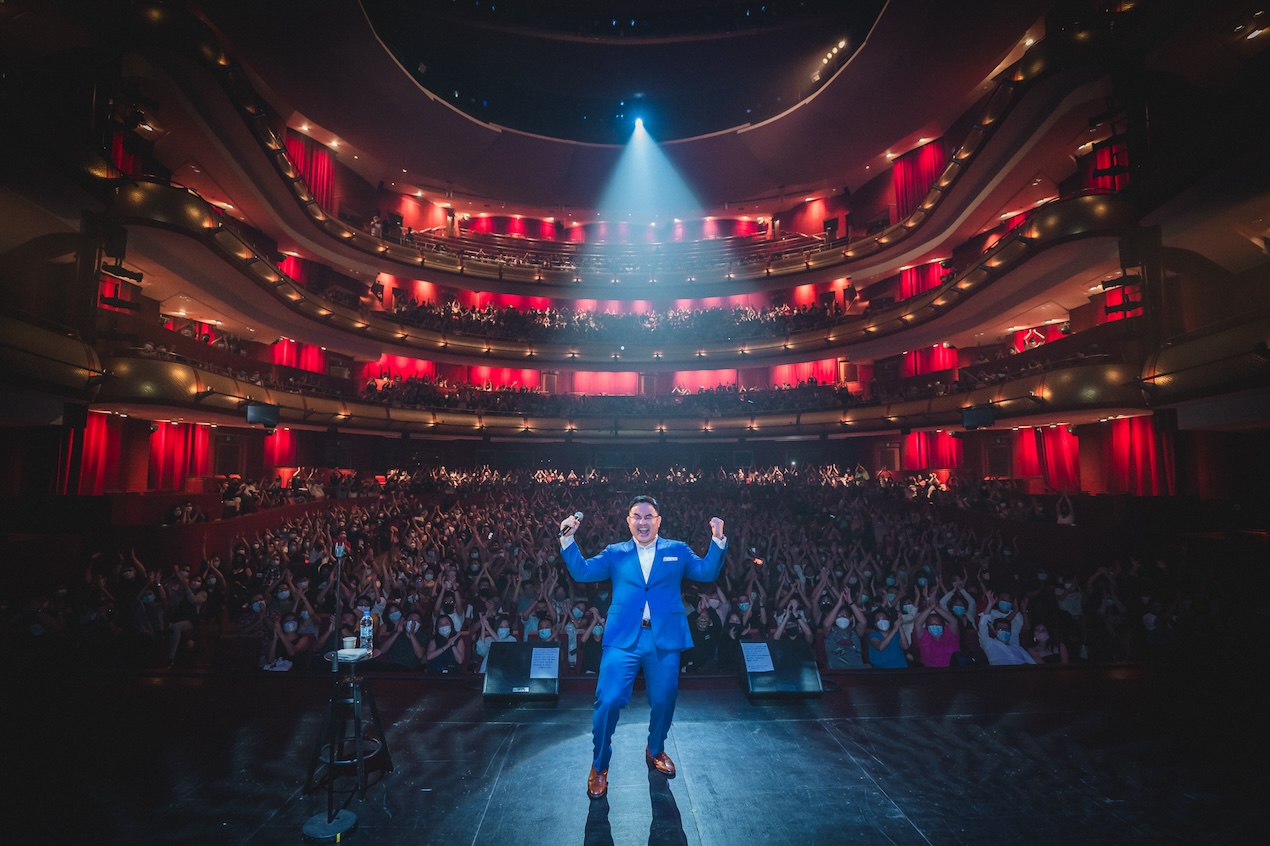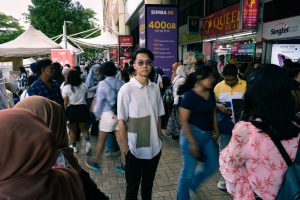Top image courtesy of Jason Leong.
“Singapore has the best comedy scene in Southeast Asia.”
We weren’t in the dark of the comedy club, but I thought comedy star Jason Leong was testing a new one-liner on me in broad daylight.
The stereotype often goes that Singaporeans are notoriously frosty, direct, and hard to please. The Malaysian comic, who regularly gigs here, chuckles it off.
“Yes, people are stiff,” he adds. “But even stiff people need laughter to escape the stresses of life. Even stiff people know how to laugh.”
He’s not wrong. Since I began frequenting comedy nights in Singapore two years ago, I’ve seen comics of all stripes flourish—from seasoned names like Rishi Budhrani and Jacky Ng to up-and-comers like Shahid Afsar. Even amateurs like me (a Hong Kong-Malaysian kid with no shame left to lose at open mics) are welcomed into the fold.
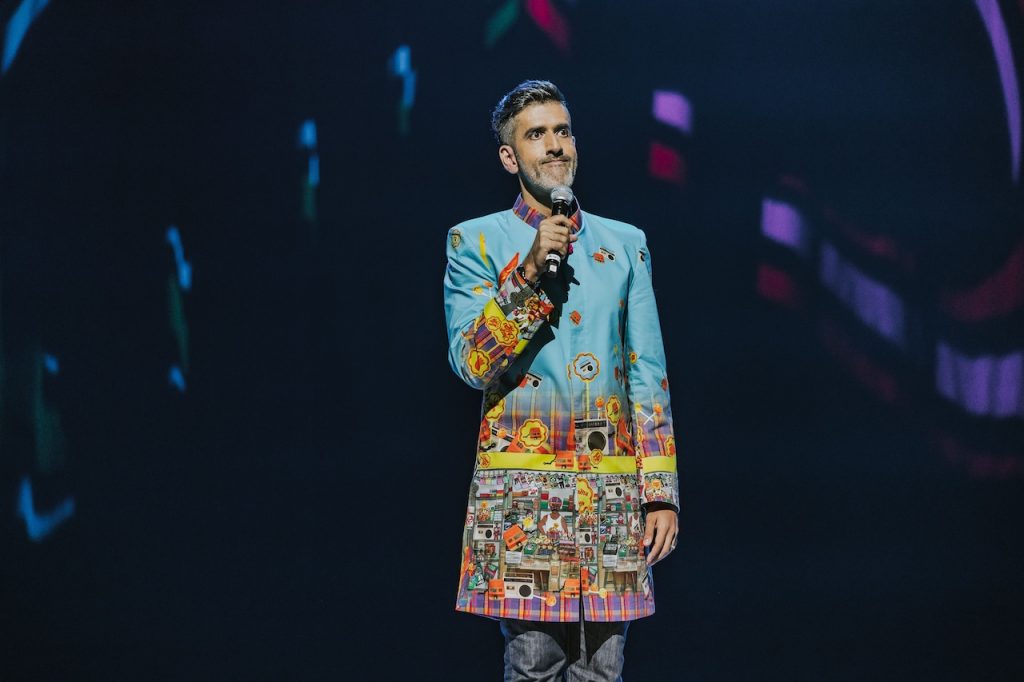
“There is no longer a homogenous one-size-fits-all perspective anymore,” Rishi says.
“Every community, in some way, is represented on the stand-up comedy stage, and I think Singapore is developing into that sort of room.”
As the scene matures, the question still stands: what are (and aren’t) people in Singapore laughing at, and what does it say about us?
The Catharsis of Comedy
A local friend and I once exchanged two of Jason’s bits. He sent me one on how Hongkongers lacked a spectrum of politeness, and I sent him one on how straight-laced Singaporean people are compared to Malaysians.
It sounds cliche (and it is), but we were laughing because we both felt seen in the material.
In Singapore, where order and efficiency are virtues, comedy gives us permission to acknowledge—and even poke fun at—our flaws.
The growth of the scene reflects that desire.
Singapore’s first comedy club, Laughs, opened its doors at Tanglin Shopping Centre in 1991. It’s where Kumar honed his iconic blend of pointed humour and drag performance, shaping the early sound of Singaporean stand-up. By the 2010s, comics like Jason, Rishi and Fadzri Rashid (Fakkah Fuzz) were gaining traction, bolstered by viral YouTube clips of Russell Peters and other Asian comics who proved that we, too, could be funny. Many more, like Jacky, would follow.
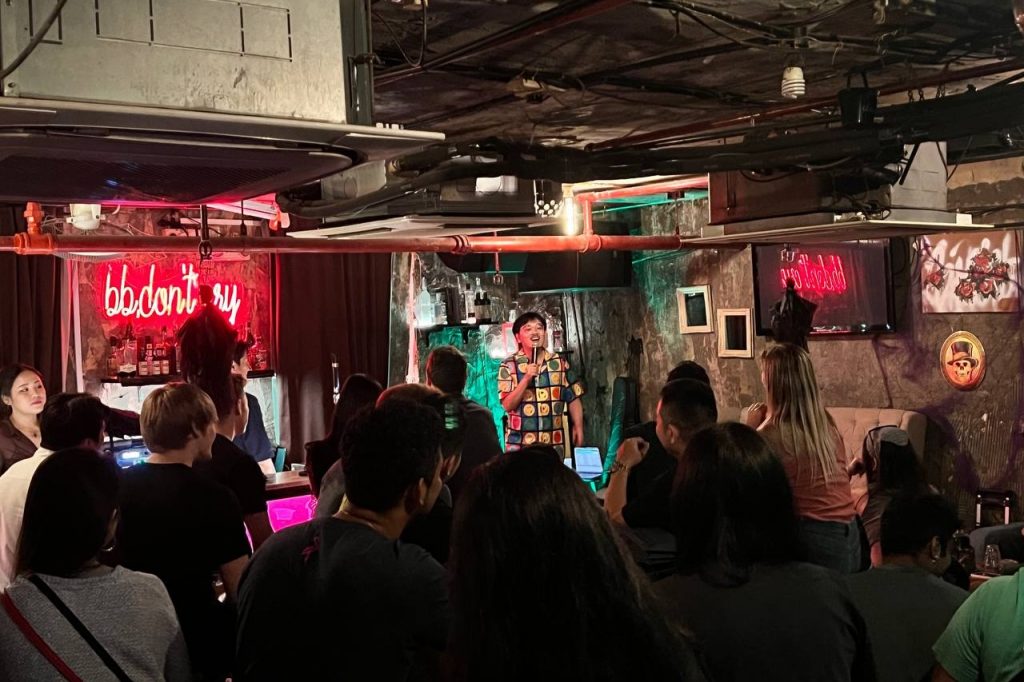
The most recent wave of traction started during Covid-19, via TikTok. Jason tells me ticket sales soared past pre-pandemic levels when lockdowns ended.
Perhaps this surge shows our unsatiated post-pandemic hunger for authentic human-to-human connection. I suppose stand-up’s emotional immediacy makes it feel particularly intimate.
Rishi describes performing like bungee-jumping naked. I don’t think Sentosa would allow me to do that in real life, but as an amateur, I understand the sentiment. There’s something uniquely cathartic about baring your flaws to a room full of strangers, and hoping they laugh.
Still, maybe I’m overanalysing this.
“There’s a very small percentage of the audience that intellectualises comedy like you and me,” Rishi chuckles. “But people are now more willing to take a chance on a good live show. And when it works, nothing compares.”
That willingness has been met by a growing pool of diverse performers. At clubs like The Lemon Stand, newer voices like Shahid’s are helping audiences find new ways to say: “Hey, that’s me.”
“Now, there are comics that can satisfy any kind of comedy you’re looking for,” Jacky says.
Hungry For Originality
As stand-up comedy has become more accessible, competitive, and experimental, comics continue to rework old formulas.
The instinct to chase a reliable laugh is strong, especially among inexperienced comics. However, audiences can tell when takes are lazy.
For instance, in such an ethnically diverse nation, race-based humour has long been a cornerstone of Singaporean stand-up.
“It’s not a slight, I think racial humour is the bedrock of what Singaporeans laugh at,” Jacky says. “It’s what the uncles tell one another at a coffee shop, what we laughed at in school.”
Jacky recalls when he first saw Rishi’s joke on how school maths questions could be rewritten to better represent each major Singaporean ethnic group.
“I was like, wow, that really is the Singapore experience translated into the form of standup.”
Years later, people still bring it up.
Shahid estimates that more than half the comics at any given open mics are doing race-related material. Some of it works. Some of it doesn’t.
It’s not that race-based material always falls flat. But with so many people exploring it, some premises or observations are bound to come off as shallow—or worse, coming from a place of animosity.
“Talking about how certain races have privileges, or certain races are short-changed, it’s very easy to fall into that trap of those cheap shots,” he says.
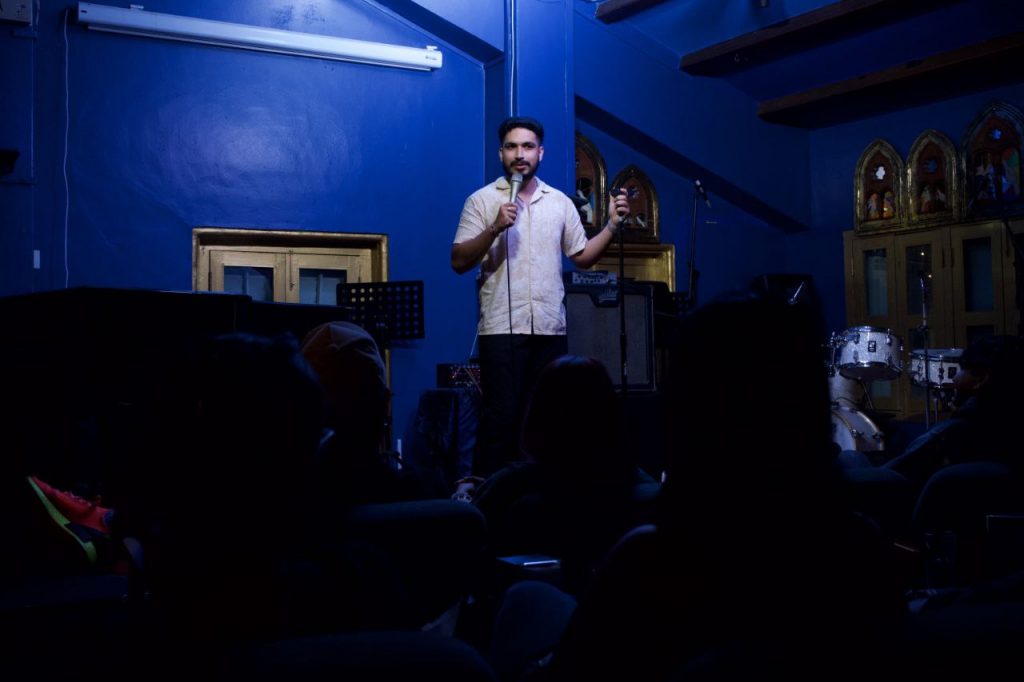
Bits like Rishi’s stand out because they don’t flatten the differences we have, but humanise them. To me, they show that relatability doesn’t have to come at the expense of depth or diversity.
It fights the notion that Singaporean life is one-note, or that people here lack creativity.
Take Shahid again. Some material on his life as a Gen Z Singaporean of Indian descent, such as discussions on generational changes in arranged marriages, are completely novel to me as a Chinese guy.
But I can relate to discussing his love life with his parents, and you probably can too. For many of us, the sweet spot for comedy doesn’t come with microwave-heating the same ideas or the short-term zing of crowdwork, but pushing past stereotypes with new understanding.
“As comedians progress, we rely less on what we know the audience finds funny. We try to show the audience what we think is funny,” Jason says.
Otherwise? “You’re going to run out of pretence,” Rishi says.
“What’s original to you might take a longer time, but eventually, that’s going to give you that loyalty of following, because the audience can smell bullshit from a mile away.”
Reimagining Boundaries, Not Ignoring Them
The internet has made Singapore so open-minded to humour that we’ll even watch someone as absurd as Zhen Zhen rant about plastic bags.
With that said, comics still hesitate to put all their material up online. It sometimes feels like the internet mob is more worrying than being censored by the authorities.
Jason points to Rishi’s take on last year’s Jocelyn Chia incident, where the Singapore-born comic sparked massive backlash for a joke on MH370. It underscored how the rapport and the red lines of what’s funny and acceptable are very different inside and outside the comedy club.
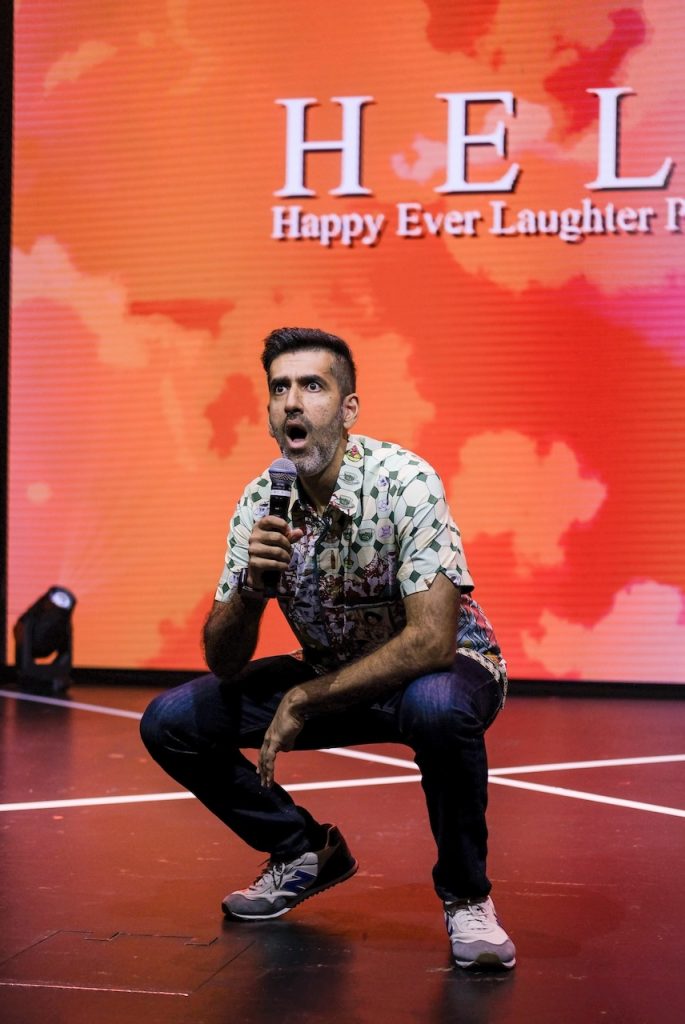
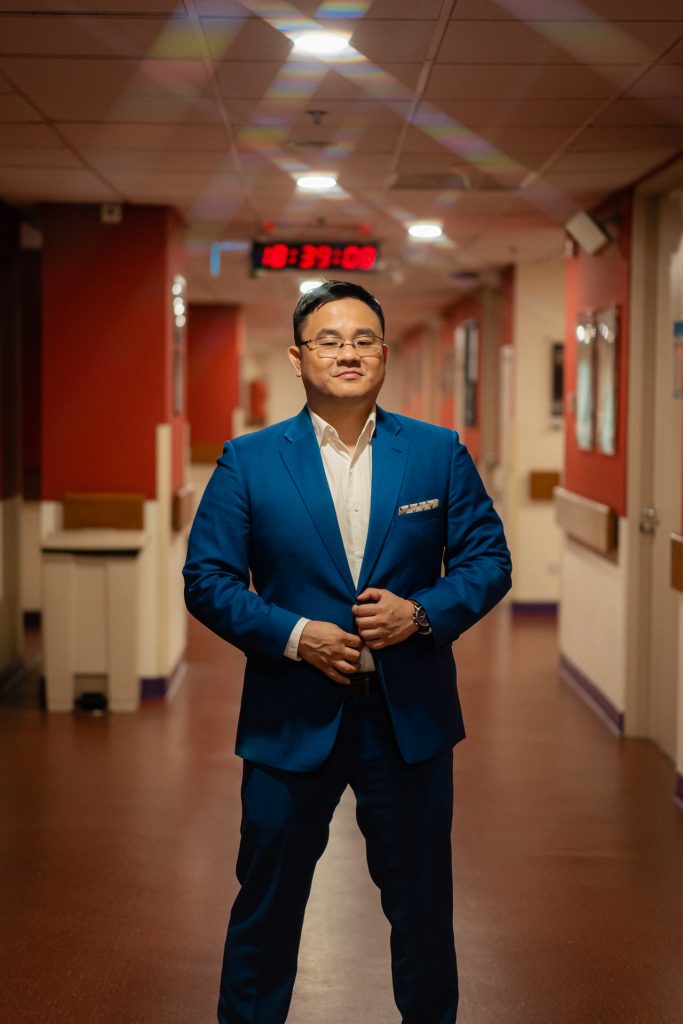
Especially in a culture as image-conscious as Singapore’s, who we’re laughing with can be just as important as what we’re laughing at.
Shahid has seen newer comics avoid commentary on topics that could be misinterpreted as punching down out of context—the LGBTQ+ community being one that comes to mind. “A lot of things are getting a little more taboo because of woke culture,” he says.
He sees this as unconstructive and opines that this makes the stage feel smaller, not safer for everyone.
“There’s a difference between understanding and appreciating a group of people, to being very scared of mentioning them at all… The moment you start shying away from a topic, that’s when you really are trying to exclude them from [comedy].”
The pattern seems to show that we’re more willing to laugh at something the more we talk about it. Laughter is the outcome of discourse happening, and the growth of Singaporean satire shows.
Jason has always felt Singaporeans liked to laugh at those with power, but saw it more openly through the sheer memeification of GE2025.
“When I saw Singaporeans make so many memes about the election, it showed that their appetite for comedy is growing, and that means more will attend stand-up comedy shows.”
Jacky saw that translate into the success of Happy Ever Laughter 2025, an ensemble show of Singapore’s most prominent comics by Dream Academy—it was almost exclusively satirical.
“The fact that it’s happening and people are reacting to it openly—it’s a nice thing to see.”
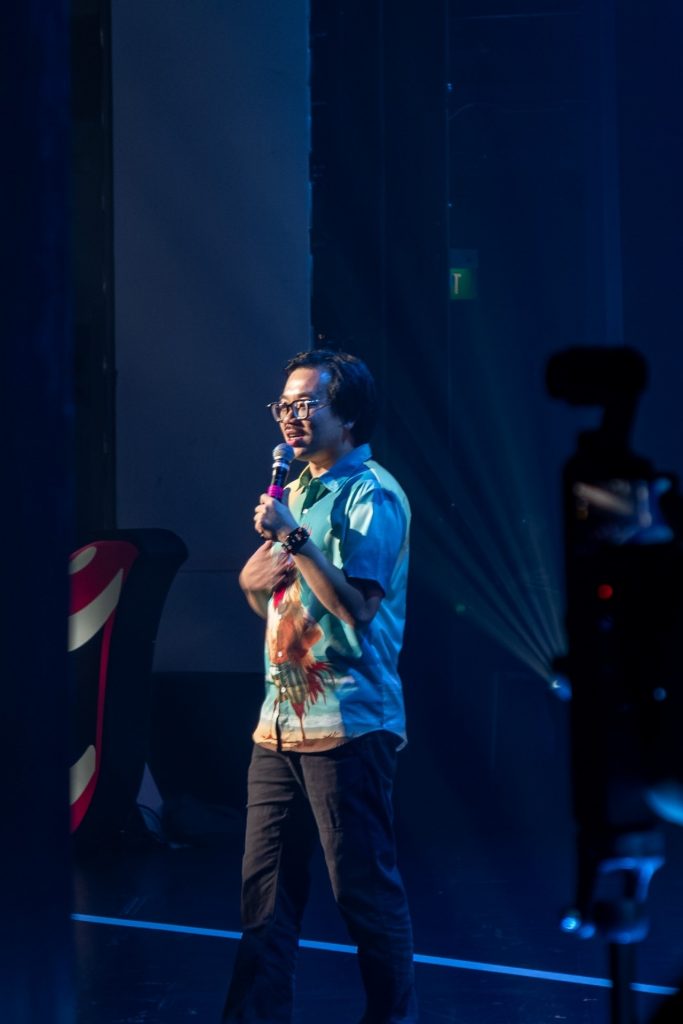
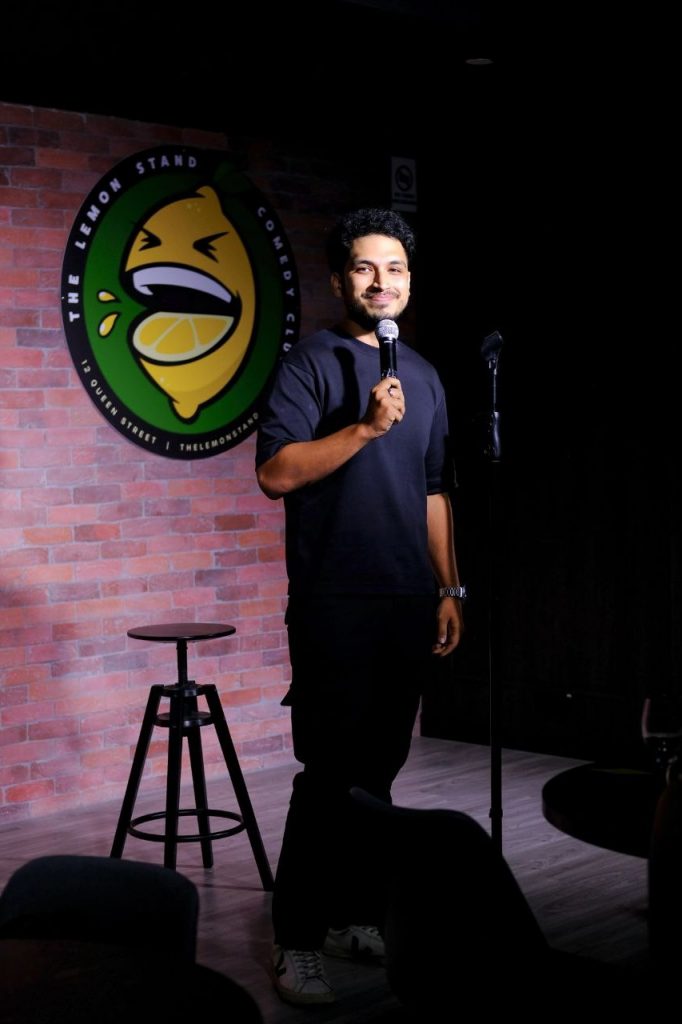
Scripts for large shows are still regulated by IMDA, but Jacky and Jason say they haven’t really been held back by the authorities.
“It’s actually much easier for me as a foreigner to do a show in Singapore than it is for me as a Malaysian to put up a solo show in Malaysia,” Jason says.
Permit processes are smoother, and acts in Singapore often face less judgment for their opinions on social issues, something local and visiting acts continue to face in Malaysia.
“I’ve never once felt like I cannot say something, as long as I’m not lying,” Jacky says. “The only meter is if you can make it funny and not besmirch the names of people.”
It’s why these comics don’t shy away from heavy topics or grovel with their opinions. We like how they’re straight-shooters. But we want to know that their ideas are well-intended before we laugh, especially in a public setting.
Getting there is a process of trial and error—mostly error. Comedians aren’t omniscient. Jacky also notes that local comedians are still trying to earn the trust of more Singaporeans. But it’s why he doesn’t shoot down even the riskiest of material by his peers.
“I don’t think any comedian sets out to offend, even if they are talking about sensitive topics… They do it with the intention to entertain.”
For Jacky, comics should be aware of the timing and tone, and remain cautious of what goes online, “but to expect a comedian to not talk about something is, I think, a fool’s errand.”
They say art thrives with limitations. Perhaps that’s what makes comics here so interesting—they’re sharp, without being reckless.
A Punchline In Progress
The laughter in the comedy clubs is an honest mirror of how people in Singapore are learning to laugh at one another without stepping on each other’s toes.
Even though the red line of what’s socially ‘appropriate’ has become blurrier than ever, the growth of the stand-up scene reflects our desire to test those lines.
“You don’t have to agree with everyone’s view, but the fact that a stage exists for every one of these people to express their views—that is extremely important,” Rishi says.
We want a lot from our comedy: to feel seen, to be surprised, to laugh without guilt. We’re ready for the punchlines, and are learning to trust the hands throwing them.
And so comics continue to keep (figuratively) bungee jumping in their birthday suit into the abyss of the comedy club, hoping the laughter catches them on the way down.

